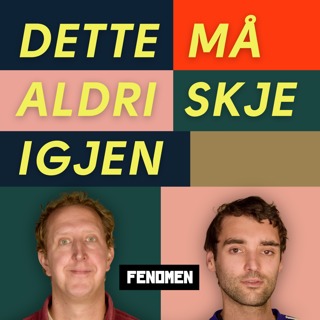
VE Day Special
Eyewitness accounts of the fall of Nazi Germany and the end of the Second World War in Europe. Using unique interviews from the BBC's archives we bring you men and women who fought in the battle for Berlin, and some of those who were with Hitler in his final days. We present the story of a German woman who survived the start of Soviet occupation, and we meet the historian whose 1995 exhibition challenged Germans' view of the war. Plus the sounds of VE Day in London, 8th May 1945, as reported by the BBC at the time. Putting it all into context, presenter Max Pearson talks to Dr Mary Fulbrook, Professor of German History at University College London and author of the award winning book "Reckonings" about the aftermath of the war and the quest for justice.(Photo by ullstein bild via Getty Images)
9 Mai 202053min

The 1957 flu pandemic
A new strain of flu emerged in East Asia in 1957 and spread all over the world. Known at the time as “Asian flu”, it killed more than a million people. We hear from a woman who survived the virus and speak to Mark Honigsbaum, author of The Pandemic Century: One Hundred Years of Panic, Hysteria and Hubris. Plus, Indonesia’s transgender rights movement, the assassination of the UN’s first Middle East mediator, conflict in the Galapagos Islands, and the trees that survived the atomic bomb in Hiroshima.Photo: Americans worried about "Asian flu" wait their turns at Central Harlem District Health clinic in October 1957. Credit: Getty Images
2 Mai 202050min

The last survivor of the transatlantic slave trade
The grandson of the last surviving African-born US slave, plus the story behind the portable hospital breathing ventilator that was a precursor to those helping save coronavirus lives; also on the programme the Pakistani welfare hero, the deadly explosion which sent 130 million gallons of oil into the Gulf of Mexico, and candid insights from one of America's greatest playwrights.
25 Apr 202050min

Apollo 13: The drama that gripped the world
50 years since the Apollo 13 mission, how millions of TV viewers followed the famous rescue of the three NASA astronauts. Also, the women who led the way in America’s space programme by spending two weeks under water and what happened when Skylab crashed to Earth in 1979. Plus, a collision on board the Mir space station in 1997 and the last men on the Moon. PHOTO: The crew of Apollo 13 after their rescue (Getty Images)
18 Apr 202051min

How technology revolutionised our lives
In a special edition of the History Hour, Max Pearson looks back at some of the major technological milestones of recent years. We hear about the Californian computer club where the founders of Apple cut their teeth, about the inventors of the webcam and about the unlikely pioneers of home shopping. Plus, the launch of the iPhone and one of the very first social networks.PHOTO: Len Shustek, former member of the Homebrew Computer Club.
11 Apr 202050min

Women in the law
Trailblazing British lawyer Rose Heilbron was the first female judge at London's famous Old Bailey criminal court. Her daughter Hillary Heilbron QC remembers how hard she had to fight to be accepted. Dana Denis-Smith, founder of the First 100 Years Project about the history of women in law, discusses women's participation in legal professions around the world.Plus, being a Muslim in China, the Swedish warship restored after 300 years, the assassination that aimed to revenge the Amritsar massacre, and Pando, the biggest living organism in the world by mass.Photo: English KC (King's Counsel) Rose Heilbron (1914 - 2005) arrives at the House of Lords in London, for the traditional champagne breakfast hosted by the Lord Chancellor at the start of the Michaelmas Term for the law courts, 2nd October 1950. (Credit William Vanderson/Fox Photos/Hulton Archive/Getty Images)
4 Apr 202049min

The AIDS memorial quilt - a patchwork of loss
How an LGBTQ+ activist decided to commemorate friends who had died of AIDS with a quilt, plus sequencing the 1918 flu virus, five years of war in Yemen, the story of a child abandoned in Hong Kong, and an attack on South Korea.(Photo: A section of the AIDS Memorial Quilt. Getty Images)
28 Mar 202050min

The launch of the Hubble Space Telescope
In 1990, NASA launched the historic mission which put into orbit the Hubble Space Telescope. The orbiting observatory has revolutionized astronomy and allowed us to peer deeper than ever before into the Universe. We hear from astronaut, Kathryn Sullivan. Plus, China's cure for malaria, the "Red Scare" in Hollywood in the 1940s and 50s, and a pioneering sexual harassment case at the US Supreme Court.PHOTO: The Hubble Space Telescope (NASA)
21 Mar 202050min





















